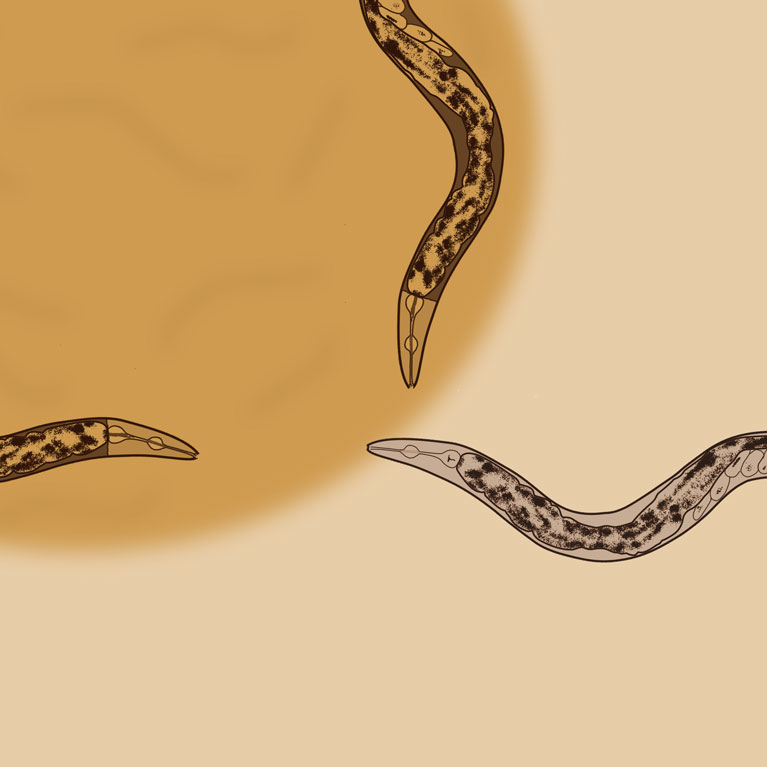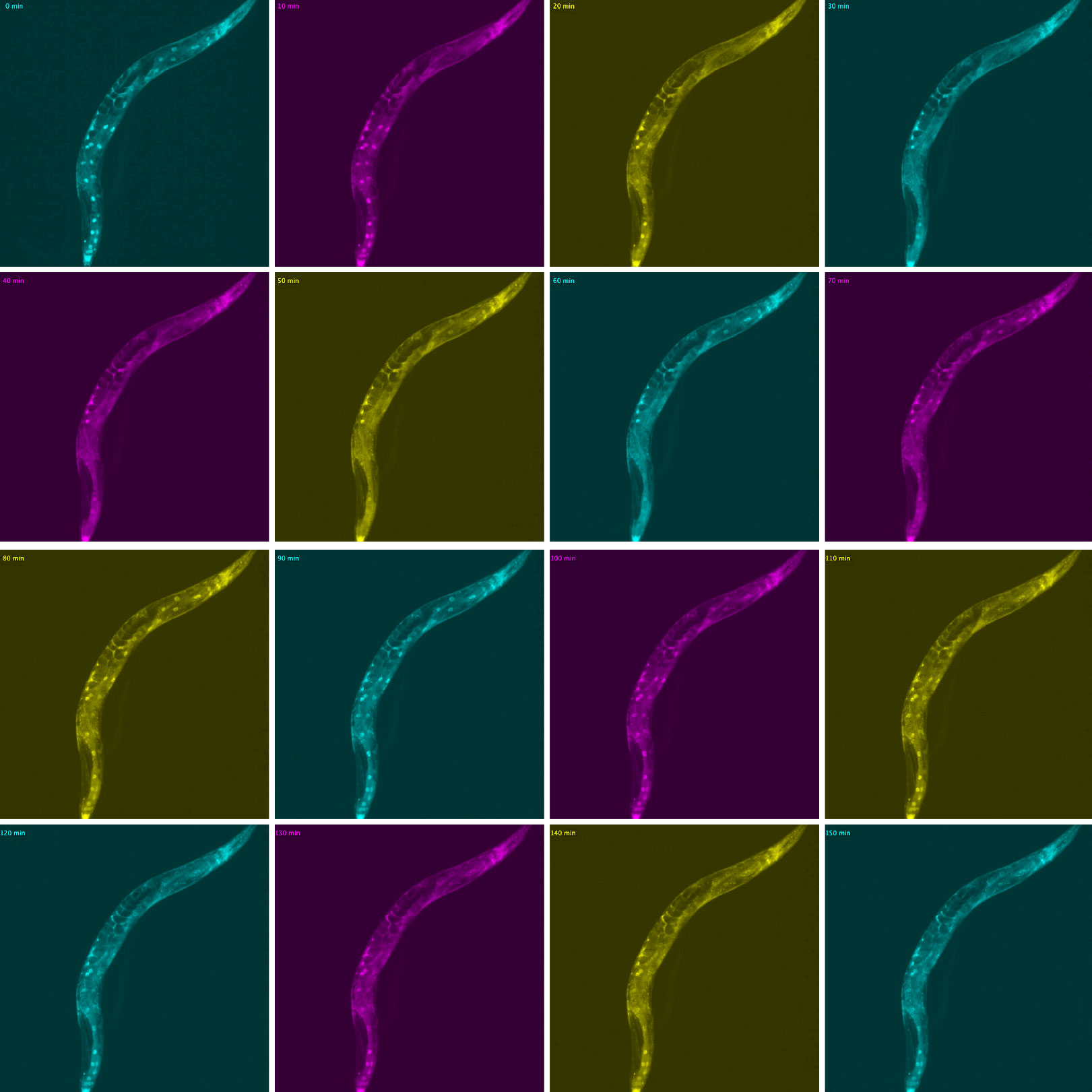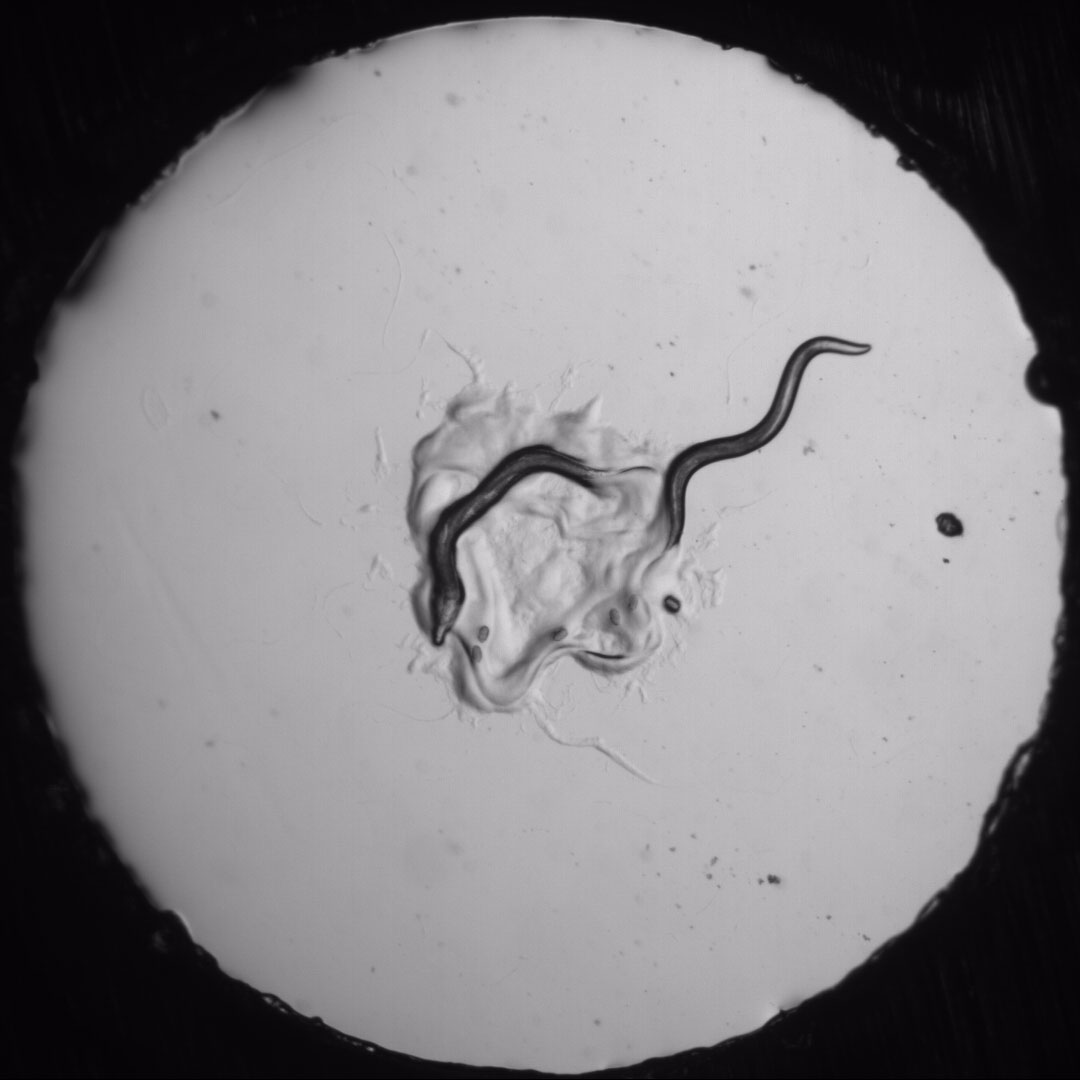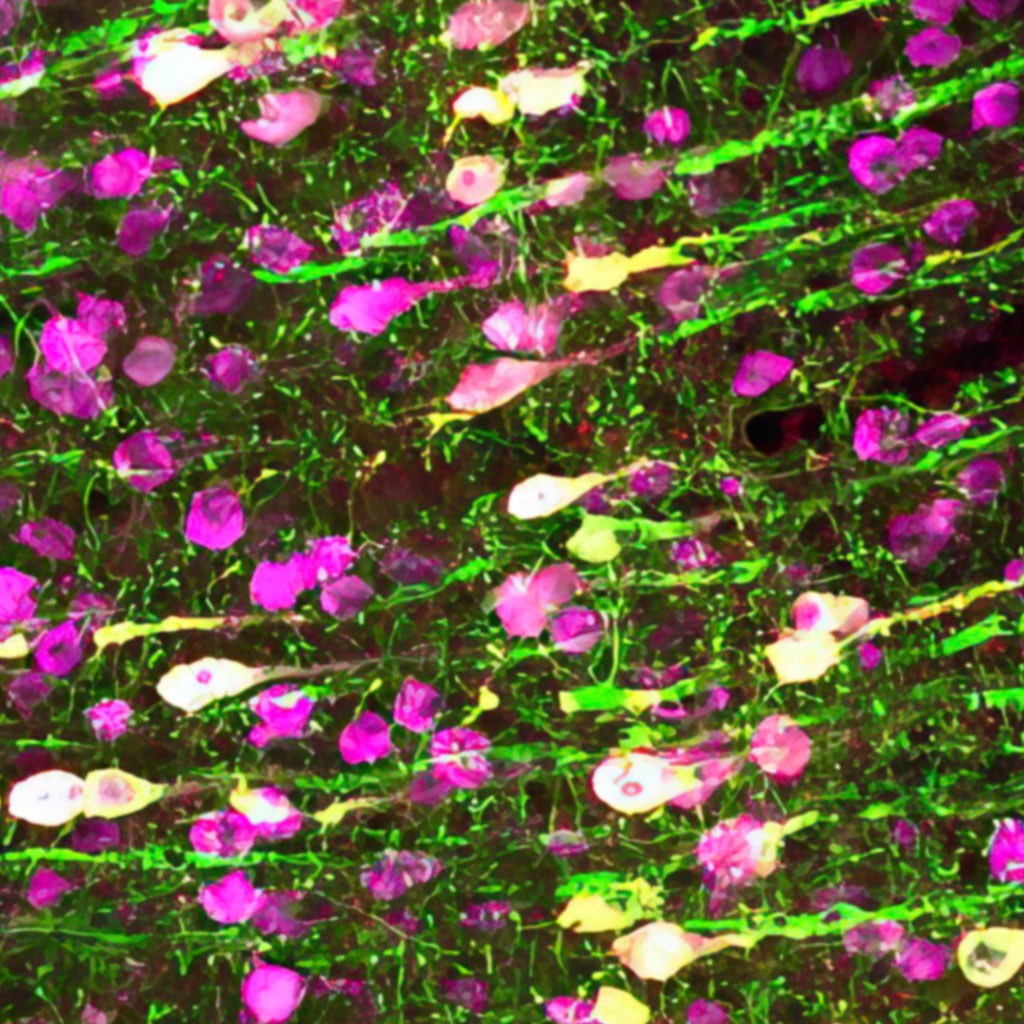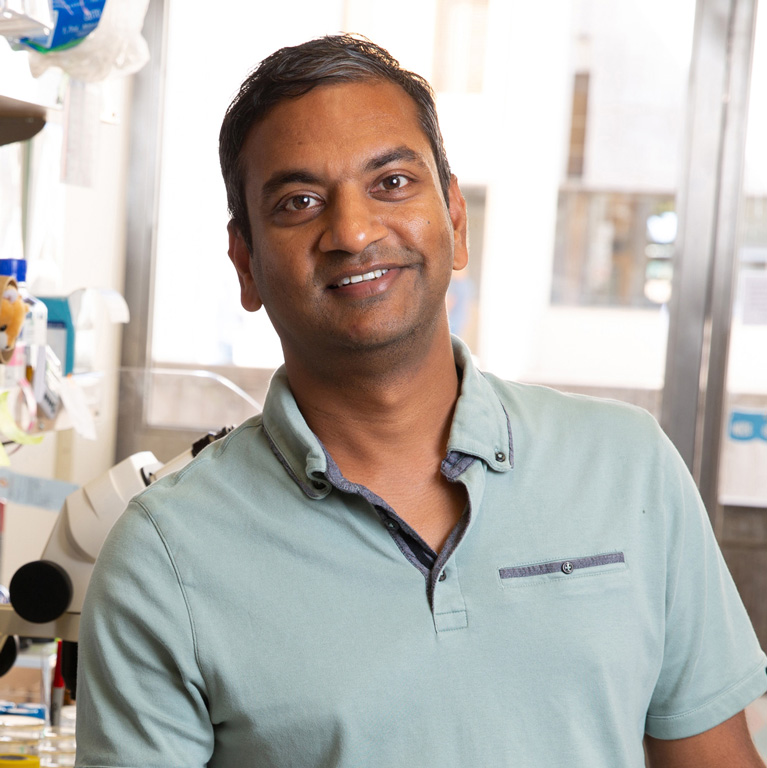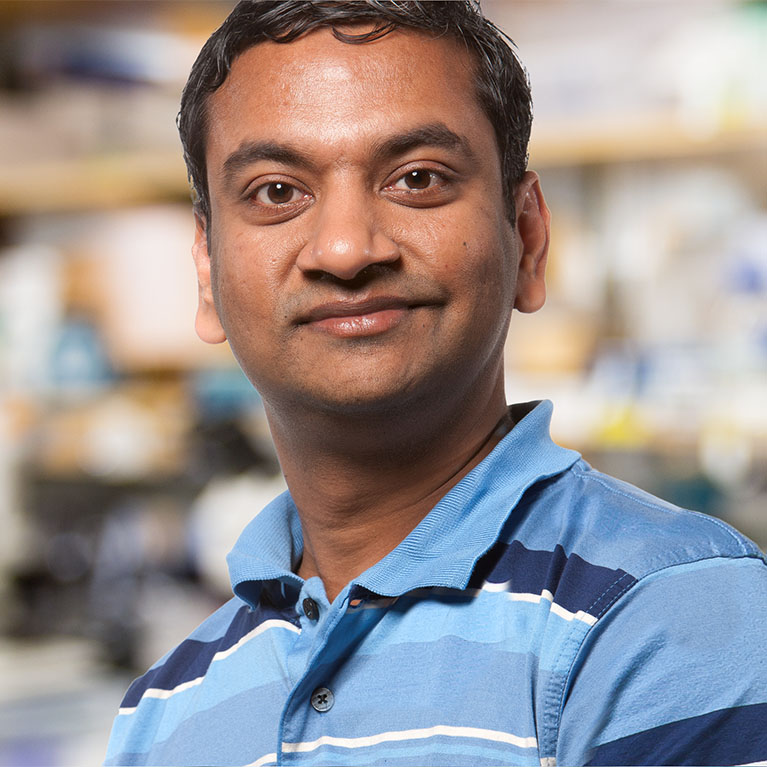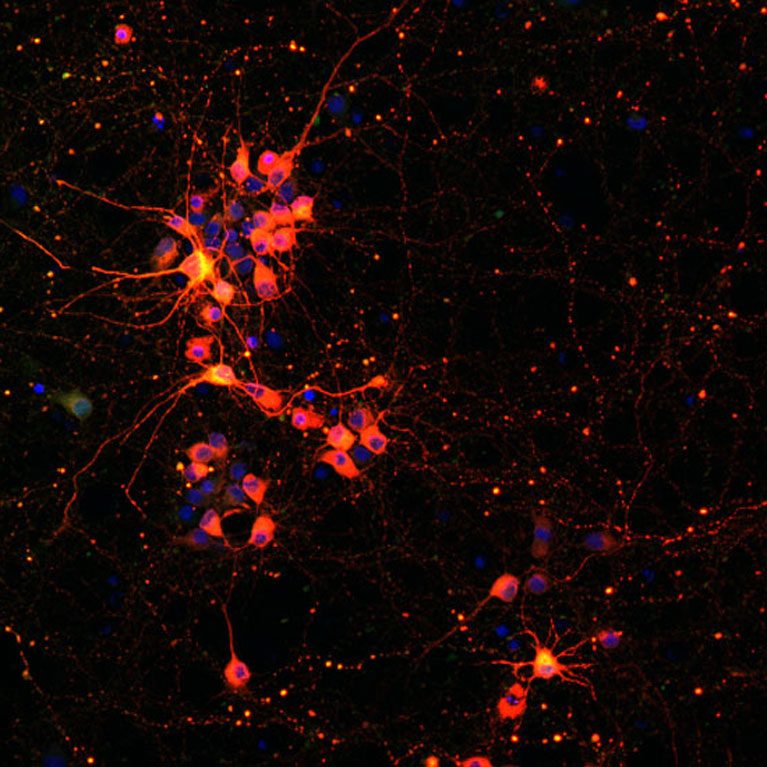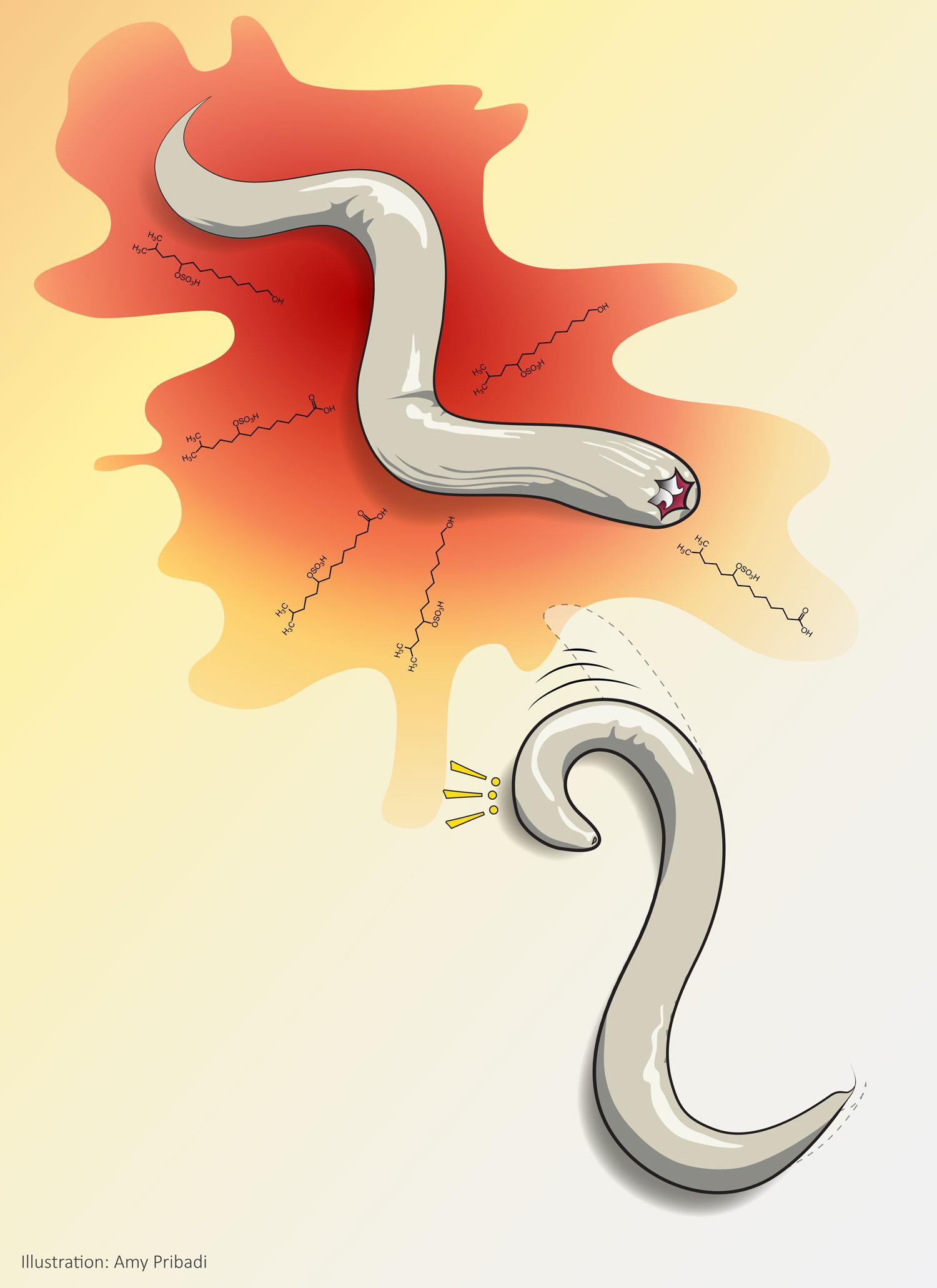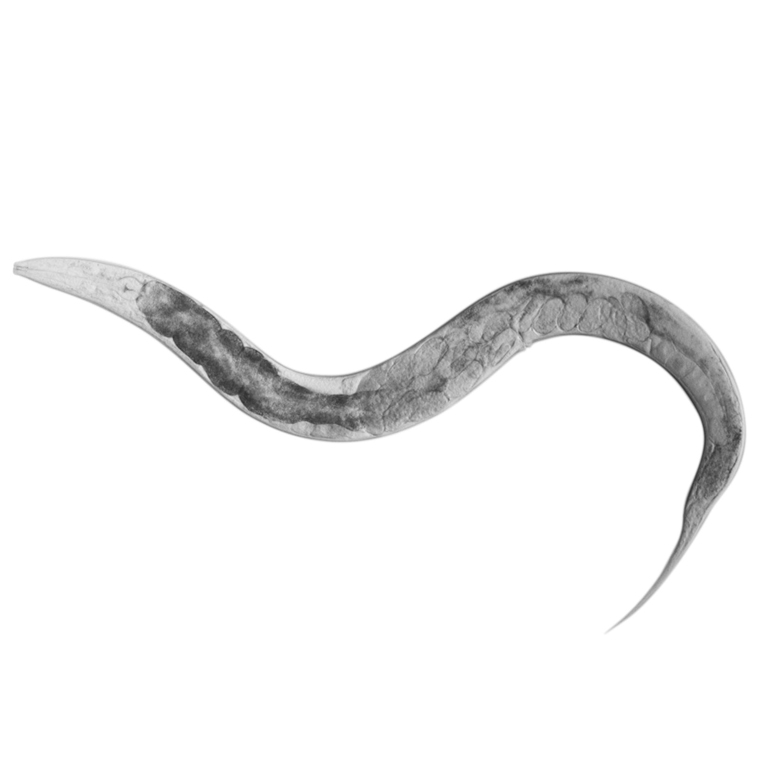Press
Preying on hungry, anxious worms
LA JOLLA—The life of the tiny worm called Caenorhabditis elegans consists mostly of looking for food, eating food, and laying eggs. So, when any of these behaviors are disrupted, there’s cause for concern. In a new study, Salk Institute scientists discovered that the “feel good” brain chemical dopamine regulates anxious worm behavior in the presence of nipping predators.
Salk Institute promotes five faculty members in genetics, structural biology, immunobiology, and neuroscience
LA JOLLA—Five Salk Institute faculty members have been promoted for their notable, innovative contributions to science. These faculty members have demonstrated leadership in their disciplines, pushing the boundaries of basic scientific research. Assistant Professors Sung Han, Dmitry Lyumkis, and Graham McVicker were promoted to associate professors, and Associate Professors Sreekanth Chalasani and Ye Zheng were promoted to professors. The promotions were based on Salk faculty and nonresident fellow recommendations and approved by Salk’s president and Board of Trustees on April 21, 2023.
Why hungry worms take risks
LA JOLLA–Whether it’s making rash decisions or feeling grumpy, hunger can make us think and act differently—“hangry,” even. But little is known about how hunger signals in the gut communicate with the brain to change behavior. Now, Salk scientists are using worms as a model to examine the molecular underpinnings and help explain how hunger makes an organism sacrifice comfort and make risky decisions to get a meal.
Tiny worms make complex decisions, too
LA JOLLA—How does an animal make decisions? Scientists have spent decades trying to answer this question by focusing on the cells and connections of the brain that might be involved. Salk scientists are taking a different approach—analyzing behavior, not neurons. They were surprised to find that worms can take multiple factors into account and choose between two different actions, despite having only 302 neurons compared to approximately 86 billion in humans.
In a first for “sonogenetics,” researchers control mammalian cells with sound
LA JOLLA—Salk scientists have engineered mammalian cells to be activated using ultrasound. The method, which the team used to activate human cells in a dish and brain cells inside living mice, paves the way toward non-invasive versions of deep brain stimulation, pacemakers and insulin pumps. The findings were published in Nature Communications on February 9, 2022.
Reading the mind of a worm
LA JOLLA—It sounds like a party trick: scientists can now look at the brain activity of a tiny worm and tell you which chemical the animal smelled a few seconds before. But the findings of a new study, led by Salk Associate Professor Sreekanth Chalasani, are more than just a novelty; they help the scientists better understand how the brain functions and integrates information.
Salk’s Sreekanth Chalasani wins 2021 NPA Gallagher Mentor Award
LA JOLLA—Salk Associate Professor Sreekanth Chalasani has won the 2021 National Postdoctoral Association (NPA) Gallagher Mentor Award. The announcement was made at the 2021 NPA Annual Conference, which took place April 15 and 16. Chalasani was one of eight finalists for the prestigious award.
Salk neuroscientists receive $4.4 million from NIH BRAIN Initiative
LA JOLLA—Salk Institute neuroscientists Edward Callaway, Sreekanth Chalasani, and Nancy Padilla Coreano have been named recipients in the 2020 round of grants from the National Institutes of Health (NIH) to gain new insights into brain function.
Salk scientists advance ultrasound technology for neurological therapy
LA JOLLA—The emerging technology of sonogenetics—a technique where cells are controlled by sound—offers the potential to one day replace pharmaceutical drugs or invasive surgical treatments for neurological conditions like epilepsy, Parkinson’s disease or posttraumatic stress disorder.
Decoding the chemistry of fear
LA JOLLA—Ask a dozen people about their greatest fears, and you’ll likely get a dozen different responses. That, along with the complexity of the human brain, makes fear—and its close cousin, anxiety—difficult to study. For this reason, clinical anti-anxiety medicines have mixed results, even though they are broadly prescribed. In fact, one in six Americans takes a psychiatric drug.
Worms have teenage ambivalence, too
LA JOLLA—Anyone who has allowed a child to “help” with a project quickly learns that kids, no matter how intelligent or eager, are less competent than adults. Teenagers are more capable—but, as every parent knows, teens can be erratic and unreliable. And it’s not just in humans; obvious differences in behavior and ability between juveniles and adults are seen across the animal kingdom.
Salk neuroscientist granted $1 million to harness sound to control brain cells
LA JOLLA—Salk Associate Professor Sreekanth Chalasani has been awarded a grant from the National Institutes of Health’s (NIH) Brain Research through Advancing Innovative Neurotechnologies (BRAIN) Initiative for developing a way to selectively activate brain, heart, muscle and other cells using ultrasonic waves, which could be a boon to neuroscience research as well as medicine.
Salk promotes four leading scientists in the fields of neuroscience, circadian rhythms and immunology
LA JOLLA–Four Salk Institute faculty members have been promoted after the latest round of faculty reviews determined they are scientific leaders who have made original, innovative and notable contributions to biological research.
Can your sense of smell predict when you’ll die?
LA JOLLA–By measuring how worms move toward an appealing, food-like scent, researchers at the Salk Institute were able to predict whether the worms would be long-lived. The finding, published September 22, 2015 in the journal eLife, shows how nematodes (Caenorhabditis elegans) process information about the environment and how circuits in the brain change as an animal ages.
In first, Salk scientists use sound waves to control brain cells
LA JOLLA–Salk scientists have developed a new way to selectively activate brain, heart, muscle and other cells using ultrasonic waves. The new technique, dubbed sonogenetics, has some similarities to the burgeoning use of light to activate cells in order to better understand the brain.
How the brain balances risk-taking and learning
LA JOLLA–If you had 10 chances to roll a die, would you rather be guaranteed to receive $5 for every roll ($50 total) or take the risk of winning $100 if you only roll a six?
Worms’ mental GPS helps them find food
LA JOLLA–You’ve misplaced your cell phone. You start by scanning where you remember leaving it: on your bureau. You check and double-check the bureau before expanding your search around and below the bureau. Eventually, you switch from this local area to a more global one, widening your search to the rest of your room and beyond.
Insulin plays a role in mediating worms’ perceptions and behaviors
LA JOLLA,CA—In the past few years, as imaging tools and techniques have improved, scientists have been working tirelessly to build a detailed map of neural connections in the human brain—with the ultimate hope of understanding how the mind works.
Achievements
2023
Congratulations Callum Walsh for receiving the Hewitt Fellowship 2023.
Congratulations Megan Anderson for receiving the Glenn Fellowship 2023
2022
Welcome to the lab Zion Igwe
Welcome to the lab Megan Anderson
Congratulations Wen Mai Wong for receiving the Damon Runyon Fellowship Award 2021
2021
Congratulations Wen Mai Wong for receiving the Salk Women in Science Award 2021
Congratulations Anupama Singh for receiving the Jonas Salk Fellowship 2021
2020
Congratulations Molly Matty for receiving a Postdoctoral fellowship from the National Science Foundation 2020
2019
Congratulations Jess Haley for receiving the NSF Graduate Research Fellowship and the Salk Women in Science Award 2019
Congratulations Michael Rieger for receiving the Hewitt Foundation Fellowship 2019
Congratulations Amy Pribadi for receiving the UCSD/KIBM Innovation Grant 2019
2018
Congratulations Anupama Singh for receiving the Glenn Foundation Fellowship 2018-2020
Congratulations Kathleen Quach for receiving the Glenn Foundation Fellowship and the Salk Women in Science Award 2018
